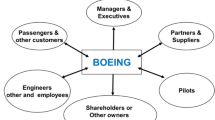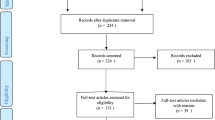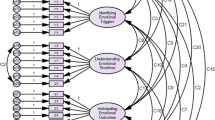Abstract
This paper summarizes results from a research project collaboration between a Transportation Security Administration (TSA) organization responsible for aviation security at a mid-sized airport in the western United States and a local university. The purpose of this project was to explore the potential and utility of a learning tool designed to enhance critical thinking skills among Transportation Security Officers (TSO). Employees of the TSA are provided comprehensive and continuous training from point of hire throughout the duration of a TSO’s employment. However performance problems continue to be identified and while TSOs are annually rated on their ability to think critically no training is provided for this specific skill. During Phase 1 of this two-phased study, a learning tool was developed in the form of a situational judgment test based tacit knowledge inventory comprised of work scenarios that were oriented on developing critical thinking skills common to TSOs. In Phase 2, TSOs organized into an experimental group, participated in structured facilitated discussions that supplemented the traditional training protocol and were based on the critical thinking tacit knowledge inventory; a control group took part in only the traditional training. A significant difference was found between the experimental and control group annual performance ratings for the critical thinking scale.
Similar content being viewed by others
References
Ambrosini V, Bowman C (2001) Tacit knowledge: some suggestions for operationalization. J Manag Stud 38(6):811–829
Berrick C (2003) Efforts to measure effectiveness and strength security programs. Aviation Security Testimony Before the Committee on Government Reform, House of Representatives. Government Accounting Office, Washington, DC
Beyer BK (2008) What research tells us about teaching thinking skills. Soc Stud 99(5):223–232
Boyce LA, LaVoie N, Streeter LA, Lochbaum KE, Psotka J (2008) Technology as a tool for leadership development: effectiveness of automated web-based systems in facilitating tacit knowledge acquisition. Mil Psychol 20:271–288
Catano VM, Brochu A, Lamerson CD (2012) Assessing reliability of situational judgment tests used in high-stakes situations. Int J Sel Assess 20(3):333–346
Christian MS, Edwards BD, Bradley JC (2010) Situational judgment tests: constructs assessed and a meta-analysis of their criterion-related validities. Pers Psychol 63:83–117
Cianciolo AT, Grigorenko EL, Jarvin L, Gil G, Drebot ME, Sternberg RJ (2006) Practical intelligence and tacit knowledge: advancements in the measurement of developing expertise. Learn Individ Differ 16:235–253
Cox RW III, Hill ML, Pyakuryal S (2008) Tacit knowledge and discretionary judgment. Public Integrity 19(2):151–164
Davies M (2011) Concept mapping, mind mapping and argument mapping; what are the differences and do they matter? High Educ 62:279–301
Dean G, Fahsing IA, Glomseth R, Gottschalk P (2008) Capturing knowledge of police investigations: towards a research agenda. Police Pract Res 9(4):341–355
Department of Homeland Security (DHS) (2017) Performance appraisal form for transportation security officer. Department of Homeland Security Form 353 (9/17) – TSA SV-1802-D-E (TSO)
Department of Homeland Security (DHS) (2021) Official website of the Department of Homeland Security. History of the Creation of the Department of Homeland Security. https://www.dhs.gov/creation-department-homeland-security
Department of Homeland Security (DHS) Office of the Inspector General (OIG) (2010) Transportation security administration’s management of its screening workforce training program can be improved. Department of Homeland Security (DHS) Office of Inspector General (OIG) report, OIG-11-05. DHS OIG, Washington, DC
Department of Homeland Security (DHS) Office of Inspector General (OIG) (2019) TSA needs to improve efforts to retain, hire, and train its transportation security officers. OIG-19-35. DHS OIG, Washington, DC
Dlugos P (2003) Using critical thinking to assess the ineffable. Community College Journal of Research and Practice 27:613–629
Eccles DW, Feltovich PJ (2008) Implications of domain-general “psychological support skills” for transfer of skill and acquisition of expertise. Perform Improv Q 21(1):43–60
Elias B (2009) Airport passenger screening: background and issues for congress. CRS Report for Congress. Congressional Research Service, Washington, DS
Eraut M (2000) Non-formal learning and tacit knowledge in professional work. Br J Educ Psychol 70(1):113–136
Eraut M (2004) Informal learning in the workplace. Stud Contin Educ 26(2):247–273
Farrar N, Trorey G (2008) Maxims, tacit knowledge and learning: developing expertise in dry stone walling. J Vocation Educ Training 60(1):35–48
FEVS (2019) Federal employee viewpoint survey. Transportation Security Administration, Washington, DC
Fiore SM, Hoffman RR, Salas E (2008) Learning and performance across disciplines: an epilogue for moving multidisciplinary research toward an interdisciplinary science of expertise. Mil Psychol 20(Suppl. 1):S155–S170
Furr RM (2018) Psychometrics: an introduction. Sage Publications, Inc., Los Angeles
Gladwell M (2008) Outliers: the story of success. Little, Brown & Co., New York
Guest CB, Regehr G, Tiberius RG (2001) The life long challenge of expertise. Medical Education 35:78–81
Halpern DF (1996) Thought and knowledge: an introduction to critical thinking. Lawrence Erlbaum Associates, Mahwah
Huang GC, Lindell D, Jaffe LE, Sullivan AM (2016) A multi-site study of strategies to teach critical thinking: ‘why do you think that?’. Med Educ 50:236–249
Hedlund J, Horvath JA, Forsythe GB, Snook S, Williams WM, Bullis RC, Dennis M, Sternberg RJ (1998) Tacit Knowledge in Military Leadership: Evidence of Construct Validity (tech. Rep. 1080). U.S. Army research Institute for the Behavioral and Social Sciences, Alexandria
Hedlund J, Wilt JM, Nebel KL, Ashford SJ, Sternberg RJ (2006) Assessing practical intelligence in business school admissions: a supplement to the graduate management admissions test. Learn Individ Differ 16:101–127
Hinds PJ, Patterson M, Pfeffer J (2001) Bothered by abstraction: the effect of expertise on knowledge transfer and subsequent novice performance. J Appl Psychol 86(6):1232–1243
Knowles MS (1988) The modern practice of adult education: from pedagogy to andragogy. Cambridge Adult Education Prentice Hall Regents, Englewood Cliffs
Koczwara A, Patterson F, Zibarras L, Kerrin M, Irish B, Wilkinson M (2012) Evaluating cognitive ability, knowledge tests and situational judgment tests for postgraduate selection. Med Educ 46:399–408
Kunsch DW, Schnarr K, van Tyle R (2014) The use of argument mapping to enhance critical thinking skills in business education. J Educ Bus 89:403–410
Legree PJ, Psotka J, Tremble TR Jr, Bourne D (2005) Applying consensus based measurements to the assessment of emerging domains. (technical report 1153). U.S. Army Research Institute for the Behavioral and Social Sciences, Arlington
Matthew CT, Cianciolo AT, Sternberg RJ (2005) Developing effective military leaders: Facilitating the acquisition of experience-based tacit knowledge. (technical report 1161). U.S. Army Research Institute for the Behavioral and Social Sciences, Arlington
Matthew CT, Sternberg RJ (2009) Developing experience-based (tacit) knowledge through reflection. Learn Individ Differ 19:530–540
McDaniel MA, Whetzel DL (2005) Situational judgment test research: informing the debate on practical intelligence theory. Intelligence 33:515–525
Moore K (2010) The three-part harmony of adult learning, critical thinking, and decision-making. J Adult Educ 39(1):1–10
Mott VW (Spring 2000) The development of professional expertise in the workplace. New Directions Adult Continuing Educ 86:23–31
Neffenger P (2015) TSA Security gaps. Statement of Peter V. Neffenger, Administrator, Transportation Security Administration, U.S. Department of Homeland Security before the United States House Committee on Oversight and Government Reform
ONET (2017). Transportation security officer skills. Occupations net (onetonline.org). URL: https://www.onetonline.org/link/summary/33-9093.00?redir=33-9099.01
Staines Z (2012) Managing tacit investigative knowledge: measuring “investigative thinking styles”. Policing: Int J Police Strat Manag 36(3):604–619
Sternberg RJ, Forsythe GB, Hedlund J, Horvath JA, Wagner RK, Williams WM, Snook SA, Grigorenko EL (1999) Tacit knowledge in the workplace. (technical report 1093). U.S. Army research Institute for the Behavioral and Social Sciences, Alexandria
Sternberg RJ, Forsythe GB, Hedlund J, Horvath JA, Wagner RK, Williams WM, Snook SA, Grigorenko EL (2000) Practical intelligence in everyday life. Cambridge University Press, Cambridge
Sternberg RJ, Hedlund J (2002) Practical intelligence, g, and work psychology. Hum Perform 15(1/2):143–160
Taylor TZ, Elison-Bowers P, Werth E, Bell E, Carbajal J, Lam KB, Velazquez E (2013) A police officer’s tacit knowledge inventory (POTKI): establishing construct validity and exploring applications. Police Pract Res Int J 14(6):478–490
Taylor TZ, Austin EA, Harrup K, Lennon C, Williams V (2020) Transportation security officer motivation: antecedents and consequences (a theoretical model). J Transp Secur 13:53–70
Transportation Security Administration (TSA) (2009) TSO training and initial certification programs, TSA management directive no. 1900.8. Transportation Security Administration Office of Security Operations Operational and Technical Training, Washington, DC
Transportation Security Administration (TSA) (2014) TSA MD 1100.43–3, employee performance management program handbook. Transportation Security Office of Personnel Management, Washington, DC
Transportation Security Administration (TSA) (2017) Job description for transportation security officer (entry level). Department of Homeland Security. URL, Washington, DC https://www.tsa.gov/about/jobs-at-tsa/transportation-security-officer
Transportation Security Administration (TSA) (2018) TSA implements new policies for operational career development: Investing in TSA’s frontline employees with a clear path for career growth. Transportation Security Administration National Press Release. TSA, Washington, DC https://www.tsa.gov/news/releases/2018/07/10/tsa-implements-new-policies-operational-career-development
Transportation Security Administration (TSA). (2019) TSA needs to improve efforts to retain, hire, and train its transportation security officers. Department of Homeland Security (DHS) Office of Inspector General report (OIG), OIG-19-35. DHS OIG, Washington, DC
Weekley JA, Ployhart RE (2006) Situational judgment tests: theory, measurement and application. In: Pritchard RD (ed) SIOP Organizational Frontiers. Lawrence Erlbaum associations, Mahwah
Author information
Authors and Affiliations
Corresponding author
Additional information
Publisher’s note
Springer Nature remains neutral with regard to jurisdictional claims in published maps and institutional affiliations.
Supplementary Information
ESM 1
(DOC 99 kb)
Rights and permissions
About this article
Cite this article
Taylor, T.Z., Prescott, R., Harrup, K. et al. Developing critical thinking skills among Transportation Security officers (TSOs) through sharing tacit knowledge. J Transp Secur 14, 107–118 (2021). https://doi.org/10.1007/s12198-021-00231-9
Received:
Accepted:
Published:
Issue Date:
DOI: https://doi.org/10.1007/s12198-021-00231-9




